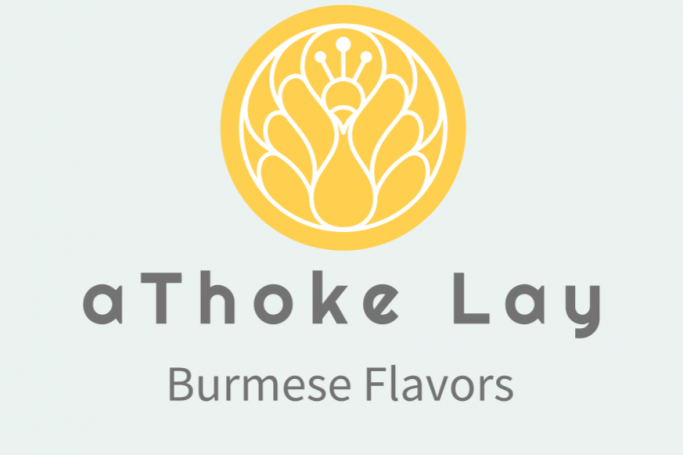Yunanda Wilson, now living in Asheville, North Carolina, USA is effectively an ambassador for Burmese food in the Land of the Brave, Home of the Free at a time of strife for her own country.
Calling her company A Thoke Lay, Yunanda runs a Burmese food truck and also caters events, with dreams of one day owning a brick and mortar restaurant business.
In a Podcast interview with Insight Myanmar (see link below), Yunanda talks of her journey and experiences as one of the widespread Burmese diaspora.
One of the biggest questions she gets from customers is, “What exactly is Burmese food?” Yunanda emphasizes the varied descriptions of the cuisine one can hear, saying that is “because we really have such a high influence from all of our neighbors,” referencing the various Chinese, Indian, and Thai foods that have found their way into Burmese recipes. Yunanda ultimately describes Burmese cuisine as a kind of Southeast Asia fusion, albeit with the caveat of unique dishes like mohinga, fermented tea leaves, and the variety of salads. “So when it comes to what makes Burmese food Burmese food, I think what makes it so beautiful is that we have that adaptability that invites different tastes and culture, and we'll mix it up a little bit based on what locally available.”
She also notes how the country’s poverty plays a role in how people eat. For example, she explains how, when the Burmese can’t afford meat or fish, they have learned to improvise by adding protein such as chickpea flour, beans, and nuts. She credits this to a certain resilient spirit that the people have had to develop over several repeated decades of oppression at the hands of military dictators. But although one might think that living in a state of fear and poverty would bring about greater selfishness in order to survive, Yunanda says it is the exact opposite, in fact: the Burmese people are known to be some of the most generous people in the world. “They’re always watching out for each other,” she notes, “and the connection of food is their way of being like, ‘Hey, I'm here for you, even though politically we might not be able to talk too much, or because I'm scared, but hey, we're in this together! ’It's like that unsaid community communication line.”
Another intriguing aspect of Burmese cooking for Yunanda is how Burmese cooks just seem to have an innate ability to combine ingredients in a dish in such a way that all the senses become involved… even when one’s pantry is limited. “The ultimate goal for any dish I'm looking for, is it going to have
acid? Is it going to have heat, texture, umami, the colors, and the presentation? And even though it's going to hit you with that, it balances, right? You're going have some sweet but then they put salt in it and sour to just harmonize everything. You would think you're back to zero, because you've balanced it, like it cancels out, but it doesn't cancel out!”
Listen to Yunanda on the podcast here:
https://insightmyanmar.org/complete-shows/2023/5/11/164-flavors-of-freedom












